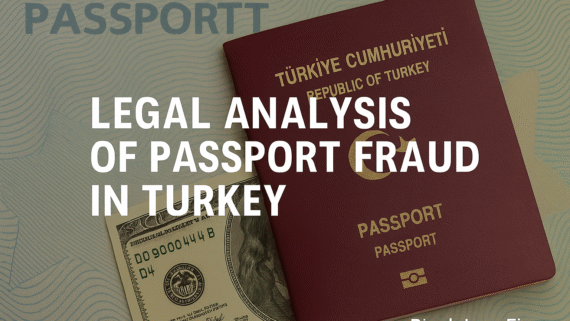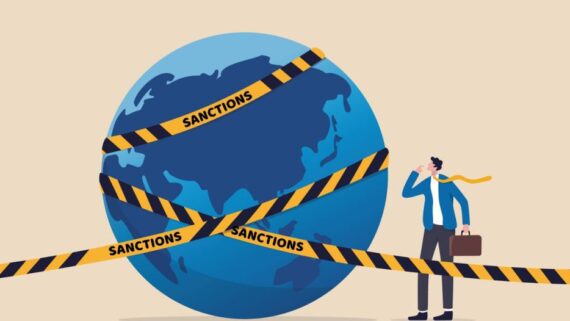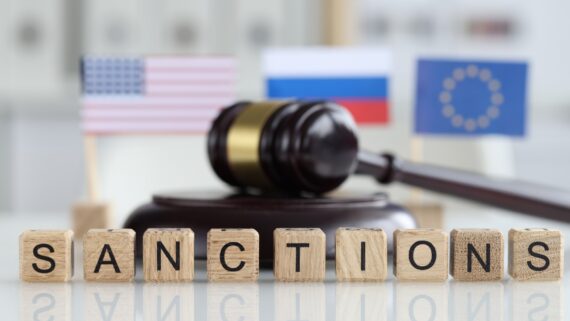The appointment of trustees (kayyım tayini) for company management is a powerful judicial tool designed to ensure the lawful administration of a business when its governance structure is compromised. Trusteeship aims to safeguard corporate assets, maintain continuity of operations, and protect the rights of shareholders, employees, creditors, and the wider public. It has become particularly prominent in Turkey in the context of criminal investigations into alleged fraud, money laundering, and organized crime. The recent Can Holding operation (September 2025) illustrates the scope of this measure: trustees were appointed over more than 120 companies, including leading media and education entities, with the TMSF assuming management powers. Similar appointments in earlier cases such as Koza İpek, Kaynak, and Boydak demonstrate how trusteeship reshapes corporate governance and raises significant legal, economic, and human-rights questions. For businesses, creditors, and investors, trusteeship represents both a legal challenge and a practical risk. Judicial control, proportionality, and international standards such as the ECHR set limits on state intervention, but practice often reveals tensions between enforcement objectives and property rights. Bıçak supports clients in navigating these complex dynamics by offering litigation services, compliance strategies, and cross-border advisory tailored to the realities of trustee-managed companies.
Appointment of Trustees for Company Management
The concept of trusteeship (kayyım tayini) has become one of the most significant and debated mechanisms in Turkish corporate and criminal practice. It reflects the tension between the state’s responsibility to combat crime and safeguard economic order, and the fundamental rights of companies, shareholders, and investors to manage their assets freely.
In its essence, trusteeship involves the temporary transfer of management powers from company directors to court-appointed trustees. This extraordinary measure is intended to secure evidence, prevent further wrongdoing, and preserve business continuity in situations where ordinary corporate governance cannot function effectively. While trusteeship exists in many legal systems – in forms such as receivership, administration, or court-appointed custodians – Turkey’s frequent and large-scale use of the measure sets it apart.
Over the past decade, trusteeship has been applied to some of Turkey’s most prominent conglomerates, including Koza İpek, Kaynak, Boydak, and most recently Can Holding in 2025. These cases demonstrate both the reach and the controversy of trustee appointments, particularly when entire groups of companies or major media outlets are placed under the control of the Savings Deposit Insurance Fund (TMSF).
The growing importance of trusteeship raises pressing questions for businesses and investors: How does the law regulate trustee appointments? What safeguards exist against disproportionate interference? How do international human-rights standards and comparative models shape the debate? And, most crucially, how can companies, creditors, and foreign investors protect their rights when confronted with trustee-managed entities?
Bıçak Law Firm addresses these questions by combining deep expertise in Turkish criminal and corporate law with an international perspective. This article explores the legal framework, case practice, and policy implications of trustee appointments, while also offering practical guidance for stakeholders navigating this complex and evolving area of law.
Background & Current Context: The Concept of Trusteeship in Corporate Law
Meaning and Purpose of Trusteeship
Trusteeship in corporate law refers to the judicial appointment of an individual or institution to temporarily assume management or oversight powers within a company. The purpose of this measure is to safeguard the company’s assets, ensure business continuity, and protect the interests of shareholders, employees, creditors, and the public at large when ordinary governance mechanisms are unable to function effectively. It is not designed to permanently transfer ownership or dismantle corporate structures but to serve as a stabilizing mechanism in times of crisis.
Trusteeship in Comparative Perspective
In civil-law jurisdictions, trusteeship or similar institutions are invoked to cure situations of organ paralysis (for example, where boards of directors are unable to reach quorum), to resolve conflicts of interest in ongoing litigation, or to stabilize companies facing insolvency.
In common-law systems, parallel mechanisms exist in the form of receivership, administration, or court-appointed trustees in bankruptcy. These figures act under close judicial supervision and are tasked primarily with preserving value for creditors and ensuring the company operates within legal limits.
Across jurisdictions, the underlying principle is the same: trusteeship is an extraordinary, temporary, and proportional remedy intended to balance private rights with broader legal and economic interests.
Contemporary Uses of Trusteeship
Trusteeship today appears in three key contexts:
- Financial stability: In banking and financial crises, trustees or special administrators are appointed to stabilize institutions, protect depositors, and prepare restructuring or liquidation.
- Criminal justice: In cases involving allegations of fraud, corruption, money laundering, or organized crime, trusteeship prevents further misuse of corporate vehicles and secures evidence for prosecution.
- Public interest sectors: In industries such as energy, media, and education, trusteeship ensures continuity of services that directly affect society. However, such interventions can also raise questions about proportionality, property rights, and freedom of expression.
The Turkish Context
Turkey has witnessed an extensive use of trusteeship, especially in the last decade. Courts, relying primarily on Article 133 of the Criminal Procedure Code (CMK), have appointed trustees over large conglomerates where serious allegations were raised. In many of these cases, the Savings Deposit Insurance Fund (TMSF) has been entrusted with management responsibilities due to its institutional capacity and oversight experience.
The Can Holding operation (2025) is the most recent example, following earlier interventions in Koza İpek, Kaynak, and Boydak groups. These appointments highlight not only the domestic importance of trusteeship as a legal safeguard but also its international dimension, as foreign investors, creditors, and business partners must adapt to the realities of trustee-managed entities.
Bıçak Law Firm monitors these developments closely and advises clients on how trusteeship may impact corporate governance, contractual rights, and cross-border recognition of corporate acts.
Turkish Legal Framework: When and How Trustees Are Appointed
Criminal-Law Based Trusteeship for Companies (CMK Article 133)
Under Turkish law, criminal liability is limited to natural persons, as the Turkish legal system does not recognize corporate criminal liability in the strict sense. However, a legal entity may face security measures or administrative sanctions if criminal offences are committed by its representatives, organs, or employees within the scope of the company’s activities. Pursuant to Article 20(2) of the Turkish Penal Code (Law No. 5237), legal entities cannot be subject to criminal penalties, but special confiscation (forfeiture) and other security measures may be imposed. Additionally, under sector-specific legislation – such as the Misdemeanours Law (Law No. 5326) and anti-corruption, competition, and data protection laws – companies may incur significant administrative fines or restrictions as a result of offences committed by their managers or employees. In practice, public prosecutors are responsible for investigating and prosecuting corporate-related crimes, exercising discretion within the framework of the principle of legality (Article 170 of the Code of Criminal Procedure).
In Turkey, the most prominent legal basis for trusteeship is found in Article 133 of the Criminal Procedure Code (CMK). This provision allows courts, upon the request of a public prosecutor, to appoint trustees to manage companies when there is strong suspicion that crimes have been committed within the scope of the company’s activities. The objective is to prevent ongoing illegal use of the corporate structure and to preserve evidence during the investigation.
Two practical models have developed:
- Co-signature model – existing directors remain in place but may only act with the countersignature or approval of the trustee.
- Replacement model – trustees fully assume the management powers of the company, displacing the directors entirely.
In recent years, courts have often appointed the TMSF as trustee, particularly in large-scale cases. TMSF’s capacity as a state body with financial oversight powers enables it to manage complex groups, but it also raises questions about independence, proportionality, and long-term economic impact.
Trusteeship under CMK 133 is intended to be temporary. In principle, it should end if the investigation results in a non-prosecution decision, or when the need for continued management intervention disappears. In practice, however, trusteeship sometimes continues for years, transforming what was designed as a short-term safeguard into a form of long-term state control.
Civil-Law Based Trusteeship (TMK Articles 403, 426/3, 427/4)
In addition to criminal-law based trusteeship, Turkish law recognizes civil-law trusteeship under the Civil Code (Türk Medeni Kanunu – TMK). Courts may appoint a trustee in situations where:
- a company’s organs are unable to function (organ paralysis),
- directors face conflicts of interest that prevent them from representing the company fairly, or
- specific litigation requires neutral representation of the company.
These provisions (TMK 403, 426/3, 427/4) are not punitive. They aim to maintain fairness and continuity in corporate governance, particularly where disputes among shareholders or directors block effective decision-making. Civil-law trusteeship is thus closer to the comparative notion of corporate guardianship or neutral administration.
Distinction Between Criminal and Civil Trusteeship
While both systems involve the appointment of trustees, their purpose and character differ fundamentally:
- CMK 133 trusteeship is a coercive criminal-law measure designed to uncover crime and prevent ongoing abuse.
- TMK trusteeship is a remedial corporate-law tool to ensure fair representation and functional governance.
Understanding the distinction is critical for businesses and investors, as the legal remedies, review mechanisms, and potential outcomes vary considerably depending on the legal basis invoked.
Bıçak has extensive experience navigating both regimes. Our team represents clients in criminal investigations where CMK 133 trusteeship is imposed, as well as in civil disputes requiring neutral trusteeship, ensuring that rights are protected and business continuity is maintained.
Procedure & Practical Mechanics
Initiation of Trusteeship
The appointment of trustees in Turkey can be triggered in two main ways:
- Criminal-law trusteeship (CMK 133): initiated by the public prosecutor during the investigation phase. The court must be convinced of the existence of strong suspicion that listed crimes were committed within the company’s activities, and that trustee appointment is necessary to uncover the truth or prevent further illegal conduct.
- Civil-law trusteeship (TMK 403, 426/3, 427/4): initiated by shareholders, creditors, or even company directors when corporate governance becomes impossible due to paralysis, conflict of interest, or missing organs.
Competent Courts
- Criminal-law trusteeship is decided by the Criminal Courts of Peace (Sulh Ceza Hakimlikleri).
- Civil-law trusteeship is decided by Civil Courts of Peace (Sulh Hukuk Mahkemeleri).
Scope of Appointment
Trusteeship orders may apply to:
- a single company,
- multiple subsidiaries, or
- entire conglomerates when activities are considered interconnected.
This broad scope has been observed in large-scale cases such as Koza İpek, Kaynak, Boydak, and Can Holding, where dozens or even hundreds of companies were placed under trustee management simultaneously.
Trustee Duties and Powers
Once appointed, trustees are vested with powers determined by the court order. These typically include:
- day-to-day management of the company,
- safeguarding and valuing assets,
- ensuring compliance with legal and regulatory requirements,
- preparing reports for the court on financial and operational status,
- protecting the rights of employees and creditors.
Where TMSF is appointed, additional powers under the Banking Law may apply, extending trusteeship beyond ordinary management into areas of restructuring, asset sales, and financial supervision.
Duration and Review
Trusteeship should remain in force only as long as necessary. Courts are expected to review the measure periodically, though in practice reviews may be infrequent. Trusteeship terminates:
- when the criminal investigation is closed without charges,
- when a trial concludes and no further risk is identified, or
- when the governance crisis in civil-law cases is resolved.
Stakeholder Communication and Practical Implications
Trusteeship has immediate and far-reaching implications for stakeholders:
- Employees may face uncertainty regarding management decisions and job security.
- Suppliers and contractors often seek reassurance about the validity of contracts signed under trustee authority.
- Creditors and banks need to assess the enforceability of securities and repayment schedules.
- Shareholders experience temporary loss of control, raising concerns about long-term value and rights.
For businesses with foreign investors or international partners, trusteeship can create cross-border complications. Recognition of trustee authority in foreign jurisdictions is not automatic and may be challenged, as seen in the Koza İpek litigation before UK courts.
Bıçak Law Firm assists clients in these practical dimensions by:
- clarifying the scope of trustee authority,
- reviewing contracts and securities for enforceability,
- communicating with trustees and regulators on behalf of clients, and
- providing cross-border advice where international recognition or enforcement issues arise.
Rights, Safeguards & Remedies
Judicial Review and Legal Remedies
Trusteeship orders, whether under CMK 133 or TMK, represent a significant interference with company autonomy and property rights. For this reason, they are subject to judicial oversight.
- In criminal-law trusteeship, affected parties (such as company owners or directors) may challenge the appointment before higher courts, seeking annulment or modification of the decision.
- In civil-law trusteeship, shareholders or creditors can apply for review, replacement of trustees, or termination of the measure once governance issues are resolved.
Principle of Proportionality
Turkish law, consistent with constitutional principles, requires that any restriction on rights must be necessary and proportionate to the legitimate aim pursued. In trusteeship cases, this means:
- The appointment should only be made if less restrictive measures (such as asset freezing or independent auditing) would not suffice.
- The scope of trustee powers should be tailored to the specific risks identified, rather than granting overly broad authority.
- Trusteeship should be reviewed periodically to ensure its continued necessity.
Human Rights Considerations
The European Convention on Human Rights (ECHR) is highly relevant in this context. Article 1 of Protocol No. 1 protects the right to property, which extends to corporate entities. The European Court of Human Rights (ECtHR) requires that:
- any interference with property must have a clear legal basis,
- it must pursue a legitimate public interest (e.g., prevention of crime), and
- it must strike a fair balance between the interests of the community and the rights of the individual/company.
In cases of prolonged trusteeship without sufficient judicial review or where entire corporate groups are affected indiscriminately, there is a real risk of breaching these standards. This is particularly sensitive where media companies are concerned, as freedom of expression (Article 10 ECHR) may also be implicated.
Safeguards in Practice
To mitigate these risks, safeguards should include:
- Clear court reasoning in trusteeship decisions,
- Defined limits on trustee powers,
- Regular reporting by trustees to the court,
- Right of stakeholders to be heard during review, and
- Termination clauses ensuring trusteeship does not become indefinite.
Remedies for Stakeholders
Stakeholders affected by trusteeship may pursue various remedies:
- Appeal and objection procedures within the Turkish judicial system,
- Compensation claims for damages if trusteeship is later found unlawful,
- International remedies, including applications to the ECtHR where violations of property rights or fair-trial guarantees are alleged.
Bıçak Law Firm represents clients in both domestic challenges and international remedies. With expertise in constitutional litigation and human-rights law, the firm ensures that clients’ rights are defended robustly while maintaining strategies to safeguard ongoing business operations.
International & Comparative Perspectives
European Human Rights Framework
The European Court of Human Rights (ECtHR) has repeatedly emphasized that corporate entities enjoy protection under Article 1 of Protocol No. 1 (A1P1) of the European Convention on Human Rights. Any interference with property must satisfy three cumulative conditions:
- Legality – the measure must be based on accessible, precise, and foreseeable legislation;
- Legitimate aim – usually prevention of crime or protection of economic order;
- Proportionality – a fair balance must be struck between the general interest and the burden placed on the affected company.
When trusteeship results in long-term state control, indiscriminate group-wide seizures, or lack of periodic review, questions arise whether these standards are met. In media cases, Article 10 ECHR (freedom of expression) also comes into play, as trustee-managed media outlets may face pressures that indirectly limit editorial independence.
The Koza İpek Litigation in the UK
The Koza İpek Group case illustrates the cross-border challenges of Turkish trusteeship. Trustees appointed in Turkey attempted to assert control over UK subsidiaries. The English High Court scrutinized whether the Turkish trusteeship was compatible with English principles of corporate governance and international public policy. Ultimately, the court limited recognition of trustee acts, highlighting that foreign trusteeship orders are not automatically enforceable abroad.
This litigation is a cautionary tale for international investors and business partners: corporate acts under trusteeship in Turkey may face obstacles in recognition, financing, and enforcement overseas.
US and UK Comparisons
- United States: Court-appointed receivers or bankruptcy trustees are installed mainly to preserve assets for creditors. Their powers are closely supervised and time-limited, reflecting a creditor-protection rationale.
- United Kingdom: Administration, receivership, and company voluntary arrangements provide structured and time-bound mechanisms with the explicit aim of business rescue or creditor satisfaction. Oversight by insolvency practitioners and the courts ensures accountability.
These systems demonstrate a strong emphasis on judicial supervision, creditor protection, and temporal limits, serving as benchmarks for evaluating Turkish practice.
German Model
Germany offers a contrasting approach through instruments such as Sonderprüfer (special examiners) and insolvency administrators. These figures have well-defined mandates in law, ensuring proportionality and protecting both minority shareholders and creditors. German corporate governance culture, built around a two-tier board system, provides structural checks and balances that often reduce the need for trustee-style interventions.
Lessons for Turkey
Comparative insights suggest three main lessons:
- Trusteeship should be exceptional and time-bound, not indefinite.
- Powers of trustees must be clearly defined and limited to the purposes of the appointment.
- Judicial oversight and stakeholder participation are essential to maintain legitimacy.
Bıçak Law Firm, with its international desks and cross-border litigation experience, advises clients on how to adapt to these divergent frameworks, defend their rights abroad, and design contracts that anticipate potential recognition disputes.
Case Gallery: Beyond Can Holding
Koza İpek Group (2015 – )
One of the earliest and most controversial examples of criminal-law based trusteeship was the Koza İpek Group, an energy and media conglomerate. Trustees were appointed over multiple companies on allegations of financing terrorism and money laundering. The group owned high-profile media outlets, and the appointment of trustees triggered sharp debates about media freedom, proportionality, and shareholder rights.
Internationally, the case spilled over into litigation in the UK High Court, where Turkish-appointed trustees sought to exercise control over Koza subsidiaries in London. The English court’s refusal to automatically recognize their authority underscores the cross-border legal complications of Turkish trusteeship orders.
Kaynak Holding (2015 – )
Kaynak Holding, with over 20 companies in education, publishing, and logistics, was placed under trusteeship following allegations of links to the Gülen movement. The appointment marked one of the largest trustee interventions at the time, affecting thousands of employees. Reports suggested significant changes in management style and workforce composition under trustee control, raising concerns about business continuity and reputational damage for counterparties.
Boydak Holding (2016 – )
Boydak Holding, a major furniture and industrial conglomerate, also came under trusteeship on allegations of supporting terrorism. The appointment was later transformed into long-term control by TMSF, effectively nationalizing one of Turkey’s largest family-owned businesses. This case illustrates how trusteeship, initially a temporary measure, can evolve into permanent state management, with lasting effects on ownership rights and investment climate.
İzmir Clusters (Küçükbay & Kavuklar, 2016)
In the aftermath of the July 2016 coup attempt, trustee appointments extended to regional conglomerates in İzmir, such as Küçükbay and Kavuklar. Dozens of companies in diverse sectors, from construction to energy, were seized under CMK 133. These cases demonstrate the potential group-wide application of trusteeship, where entire clusters of affiliated businesses are brought under trustee control.
Can Holding (2025)
The most recent and high-profile example is the Can Holding operation (September 2025). Prosecutors alleged large-scale financial crimes, including fraud and money laundering. Trustees were appointed over 121 companies, including leading media assets such as Habertürk, Show TV, and Bloomberg HT. The TMSF assumed management powers immediately, ensuring operational continuity but also raising questions about editorial independence, long-term ownership rights, and the scale of state intervention in private enterprise.
Ciner Group / Park Holding (2025)
In the widening probe linked to Can Holding, the Istanbul Chief Public Prosecutor’s Office announced court-ordered trusteeship over parts of the Ciner ecosystem: the Savings Deposit Insurance Fund (TMSF) was appointed as trustee to Park Holding A.Ş. and several affiliates – AFC İthalat İhracat Turizm A.Ş., Zeyfa İthalat İhracat A.Ş., and Silopi Elektrik Üretim A.Ş. – with subsequent coverage totaling 18 companies. The measures, imposed under Criminal Procedure Code Article 133, were reported alongside detention and arrest warrants, including for Turgay Ciner, in investigations referencing organized crime, money-laundering and related economic offenses. These steps illustrate how Turkish courts deploy interim corporate trusteeship to preserve assets and managerial control during complex financial-crime inquiries involving large holding structures.
Paramount/Plaza Bodrum (2025)
Under the Istanbul Chief Public Prosecutor’s investigation into “establishing a criminal organization,” “usury,” and “laundering proceeds of crime,” a Criminal Judgeship of Peace has appointed the Savings Deposit Insurance Fund (TMSF) as trustee to manage Bodrum Otel İşletmeleri A.Ş., which operates “The Plaza Bodrum/Paramount Hotel.” The measure – reported alongside asset seizure actions – follows detention orders for several suspects, including Sezgin Baran Korkmaz, Cihan Ekşioğlu, Çağlar Şendil, Melike Yüksel, Sinan Görkem Gökçe, Şaban Kayıkçı, and Alpan Keskin, in connection with allegations that the complainant company (Ufuk Turizm) was indebted to entities under their control and then re-lent funds at interest, while the hotel’s “usufruct/operating right” was transferred and allegedly co-run by some of the suspects. The Prosecutor’s Office stated that TMSF’s appointment was made pursuant to CMK Article 133, which permits court-ordered trusteeship for company management during criminal proceedings.
Lessons from Case Practice
Across these cases, several themes emerge:
- Trusteeship often extends far beyond a single company, covering entire conglomerates.
- Appointments may last for years, sometimes evolving into de facto state management.
- Media companies under trusteeship face particular scrutiny due to freedom of expression concerns.
- Cross-border legal disputes (e.g., Koza in the UK) show that recognition of trustee powers abroad is not guaranteed.
Bıçak Law Firm closely monitors these cases and advises clients with direct or indirect exposure. Whether negotiating contracts with trustee-managed companies, litigating shareholder rights, or preparing cross-border enforcement strategies, the firm’s experience ensures clients are not caught unprepared.
Interfaces: Corporate, Banking & Media-Freedom
Corporate Governance and Market Stability
When trustees are appointed, especially over large conglomerates, the ordinary governance structure is disrupted. Boards of directors lose their authority, and shareholders are sidelined. This creates uncertainty not only for the affected company but also for its entire business network—subsidiaries, suppliers, contractors, and customers. Corporate decision-making slows down as trustees must seek court approval for key transactions. For counterparties, this increases the risk of delayed payments, contract renegotiations, or even defaults.
In Turkey, where trusteeship has been applied to some of the country’s largest industrial and commercial groups, these disruptions can have systemic effects on markets. For this reason, courts often appoint TMSF, an institution with financial and managerial capacity, to minimize economic instability.
Banking and Finance Sector Implications
Trusteeship directly affects relations with banks and financial institutions:
- Loan agreements: Trustee appointments may trigger change-of-control clauses or even events of default, giving lenders the right to accelerate repayment.
- Collateral and securities: Creditors may question the validity of mortgages, pledges, and guarantees executed by trustee-managed companies.
- Creditworthiness: Companies under trusteeship often face restrictions in obtaining new financing due to reputational and legal risks.
Banks, both domestic and international, therefore need clear legal guidance to adjust their risk assessments and renegotiate terms. Bıçak Law Firm frequently supports financial institutions in reviewing exposure, updating security packages, and ensuring enforceability of rights during trusteeship.
Media and Freedom of Expression
The most sensitive interface is in the media sector. Trustee appointments over media groups such as Koza İpek (2015) and Can Holding’s channels (2025) illustrate how trusteeship can alter editorial independence.
- Editorial risk: Trustees may influence management decisions affecting newsrooms, programming, and journalistic autonomy.
- Pluralism concerns: Concentration of media outlets under state-appointed trustees raises questions about diversity of viewpoints and democratic debate.
- International attention: Both the European Union and the Council of Europe have expressed concerns over trusteeship measures in media companies, linking them to broader debates on rule of law and freedom of expression in Turkey.
Balancing Interests
Trusteeship in strategic sectors reflects a delicate balance:
- On one hand, the state has a duty to prevent companies from being used for criminal activity.
- On the other, prolonged or broad trustee interventions risk undermining investor confidence, financial stability, and media pluralism.
Bıçak Law Firm regularly advises banks, creditors, and media companies on contractual adjustments, compliance obligations, and reputational risk management when trusteeship reshapes governance structures. Our multidisciplinary approach combines expertise in corporate law, financial regulation, and human-rights law, allowing us to deliver holistic solutions to clients affected by these sensitive interventions.
Compliance & Risk Management
For Companies Operating in Turkey
Companies should not wait until trusteeship is imposed to prepare. A robust compliance program is the best shield against allegations that may lead to trustee appointment. Key steps include:
- Strengthening internal compliance: Implementing anti-money laundering (AML), anti-bribery, and corporate governance policies tailored to Turkish law.
- Documenting decision-making: Maintaining detailed records of board decisions and financial transactions to demonstrate transparency.
- Crisis management planning: Establishing internal protocols for responding to dawn raids, investigations, or court-ordered interventions.
- Training executives and staff: Ensuring managers understand their duties under Turkish corporate and criminal law to minimize individual liability.
For Lenders and Creditors
Trusteeship can change the financial risk profile of a company overnight. To mitigate this risk, banks and other creditors should:
- Draft protective clauses: Loan agreements should contain clear change-of-control and trusteeship clauses that allow lenders to renegotiate terms or call in loans.
- Refresh due diligence: Conduct periodic checks on borrowers’ legal status, especially where allegations of financial crime may surface.
- Secure collateral: Review mortgages, pledges, and personal guarantees to ensure they remain enforceable even if management passes to trustees.
For Foreign Investors and Counterparties
International investors face unique challenges when their Turkish partners fall under trustee management:
- Recognition abroad: Acts of trustee-managed companies may not be automatically recognized in foreign jurisdictions (as shown in the Koza İpek litigation in the UK).
- Contract performance: Investors should assess whether long-term contracts, licensing agreements, or joint ventures remain enforceable when a trustee replaces the board.
- Exit strategies: Consider contractual provisions allowing withdrawal or renegotiation if trusteeship is imposed.
The Role of Legal Advisors
Navigating trusteeship requires specialized legal support that combines knowledge of Turkish corporate and criminal law with an understanding of international standards. Bıçak Law Firm provides:
- Preventive compliance audits for companies seeking to reduce exposure to trustee appointment,
- Contract structuring to protect lenders and investors in case of governance intervention,
- Negotiation and communication with trustees and regulators to safeguard business continuity, and
- Cross-border advisory for recognition and enforcement issues in foreign courts.
By integrating compliance, corporate, and international perspectives, Bıçak Law Firm ensures that clients are not only reactive but also proactive in managing the risks of trusteeship.
Litigation & Strategy Toolkit
Challenging the Appointment of Trustees
Companies and shareholders affected by trusteeship under CMK 133 or TMK have the right to challenge the decision:
- Appeals and objections: Immediate objection can be filed against the court order, requesting annulment or narrowing of trustee powers.
- Scope limitation: Courts may be asked to restrict trusteeship to specific subsidiaries or business lines rather than an entire conglomerate.
- Trustee replacement: If trustees fail to perform their duties impartially or competently, parties may request their removal and replacement.
These remedies are essential for preserving proportionality and ensuring that trusteeship does not go beyond its legitimate purpose.
Protecting Corporate and Shareholder Rights
Even when trusteeship is upheld, stakeholders can still safeguard their rights by:
- Demanding periodic review: Courts are obliged to reassess whether the measure remains necessary.
- Preserving evidence of damage: Documenting financial losses, reputational harm, or missed opportunities caused by trusteeship can form the basis for later compensation claims.
- Minority shareholder strategies: Minority owners may seek judicial protection against dilution of value or exclusion from decision-making.
Cross-Border Litigation
Trusteeship raises unique international law challenges, particularly when companies hold assets abroad:
- Recognition disputes: As seen in the Koza İpek case in the UK, foreign courts may refuse to recognize trustee authority if it conflicts with local corporate law or public policy.
- Anti-suit injunctions and parallel proceedings: Shareholders may resort to foreign courts to shield overseas subsidiaries from Turkish trustee control.
- Enforcement of contracts: Foreign investors may litigate in international arbitration or foreign courts if trusteeship undermines performance of cross-border agreements.
Strategic Approaches for Stakeholders
- Negotiated engagement: In some cases, cooperating with trustees to maintain operational continuity may be the most pragmatic approach.
- Dual-track strategy: Companies may simultaneously challenge trusteeship in Turkish courts while pursuing protection in foreign jurisdictions.
- Proactive contractual planning: Building in arbitration clauses, choice-of-law provisions, and termination rights into agreements can provide additional layers of protection against trustee-related disruptions.
Bıçak’s Role
Bıçak represents clients in both domestic litigation and cross-border disputes arising from trusteeship. Our services include:
- Filing objections and appeals in Turkish courts,
- Litigating shareholder and creditor rights during trusteeship,
- Pursuing compensation claims for unlawful or excessive interference,
- Advising on international recognition and enforcement issues, and
- Designing dispute-resolution strategies that combine Turkish remedies with international law protections.
By leveraging experience in criminal law, corporate disputes, and international litigation, the firm provides clients with a comprehensive toolkit to defend their rights and mitigate losses.
Policy Options & Reform Proposals
The Need for Reform
The practice of appointing trustees for company management in Turkey has evolved rapidly, especially in the aftermath of large-scale investigations and the use of TMSF as trustee. While the legal basis exists under CMK 133 and TMK, practice has revealed shortcomings in clarity, proportionality, and predictability. These gaps create uncertainty for businesses, shareholders, and international investors.
Key Reform Areas
- Codification of Trustee Duties
- Trustees should be explicitly bound by fiduciary duties similar to those of company directors, including obligations of loyalty, impartiality, and transparency.
- Clear rules on conflict of interest and accountability would strengthen trust in the process.
- Duration Limits and Periodic Review
- Trusteeship should be limited to defined timeframes, subject to renewal only upon judicial justification.
- Courts should be required to conduct periodic reviews, ensuring the measure does not become a de facto permanent takeover.
- Transparency and Notice Requirements
- Affected companies and stakeholders should be formally notified of trustee appointments and given the opportunity to be heard.
- Trustees should publish periodic reports on financial and operational decisions, ensuring oversight by shareholders, creditors, and regulators.
- Tailored Scope of Appointments
- Instead of seizing entire groups, trusteeship orders should be limited to companies or activities directly linked to alleged crimes or governance failures.
- This would prevent unnecessary disruption to unrelated businesses and protect innocent stakeholders.
- Special Safeguards for Media Companies
- When media outlets are placed under trusteeship, specific safeguards should protect editorial independence and freedom of expression.
- Judicial oversight could include requiring independent media ombudsmen or supervisory boards to preserve pluralism.
- International Alignment
- Turkey could look to comparative models in the UK, US, and Germany, where receivership and administration are time-bound and subject to rigorous judicial control.
- Aligning domestic practice with European human rights standards would enhance investor confidence and reduce the risk of adverse judgments before the ECtHR.
Bıçak’s Contribution
Bıçak not only defends clients affected by trusteeship but also contributes to the policy debate through academic research, publications, and professional forums. By engaging with comparative and international law, the firm advocates for reforms that balance effective crime prevention with the protection of property rights, corporate autonomy, and market stability.
Our thought leadership ensures that clients benefit not only from immediate legal representation but also from forward-looking insights into the future direction of Turkish corporate governance reforms.
Conclusion
The appointment of trustees for company management is one of the most powerful yet controversial tools in Turkish law. It is intended to prevent misuse of corporate structures, safeguard assets, and secure evidence in criminal investigations or resolve governance deadlocks in civil disputes. In practice, however, trustee appointments often extend across entire conglomerates, last for years, and profoundly affect shareholders, creditors, employees, and even the wider public.
Cases such as Koza İpek, Kaynak, Boydak, and Can Holding illustrate both the necessity and the risks of trusteeship. On one hand, the measure protects the integrity of the legal system by stopping alleged criminal activity within companies. On the other, prolonged or broad interventions can undermine property rights, market confidence, and media pluralism.
International law, particularly the European Convention on Human Rights, demands that trusteeship be lawful, proportionate, and subject to regular review. Comparative models in the US, UK, and Germany show that similar measures are possible without sacrificing transparency, time limits, or stakeholder protections. These examples offer valuable lessons for aligning Turkish practice with global standards.
For businesses, creditors, and investors, the key to navigating trusteeship lies in preparation, compliance, and strategic legal guidance. Companies must strengthen their internal controls, creditors should secure contractual protections, and international partners must plan for recognition issues abroad.
Bıçak Law Firm stands at the intersection of these challenges. With deep expertise in corporate law, criminal law, human rights, and international litigation, the firm offers clients:
- Preventive compliance audits and contractual safeguards,
- Strategic representation in Turkish courts,
- Cross-border advisory in recognition and enforcement disputes, and
- Thought leadership in policy and law reform debates.
Trusteeship will continue to play a prominent role in Turkey’s legal and business environment. Companies and investors who act proactively – supported by experienced legal counsel – will be best placed to protect their interests and maintain stability in times of uncertainty.
Bıçak Law Firm is ready to provide the strategic guidance and representation needed to navigate trusteeship proceedings in Turkey with confidence.
 English
English Türkçe
Türkçe Français
Français Deutsch
Deutsch










Comments
No comments yet.